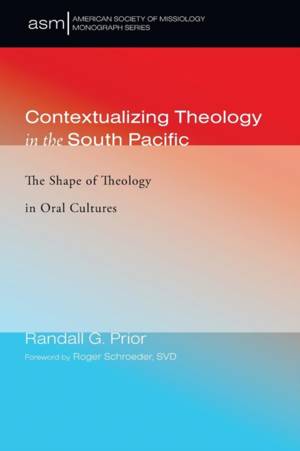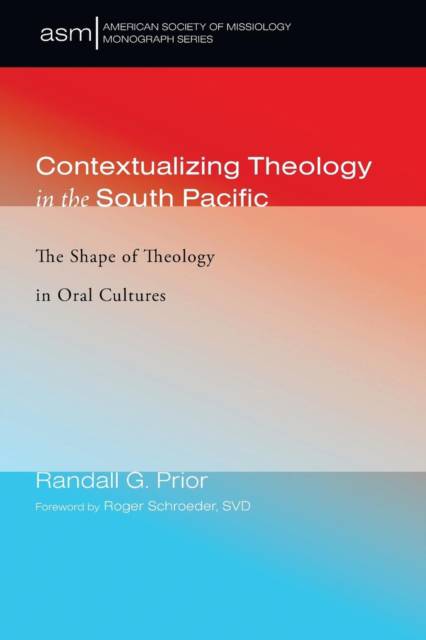
- Afhalen na 1 uur in een winkel met voorraad
- Gratis thuislevering in België vanaf € 30
- Ruim aanbod met 7 miljoen producten
- Afhalen na 1 uur in een winkel met voorraad
- Gratis thuislevering in België vanaf € 30
- Ruim aanbod met 7 miljoen producten
Zoeken
Contextualizing Theology in the South Pacific
The Shape of Theology in Oral Cultures
Randall G Prior
€ 51,95
+ 103 punten
Uitvoering
Omschrijving
This book engages with a widespread contemporary dilemma--how do we do theology in a context where the cultures of the people are oral and not literate? The nations of the South Pacific, from their missionary beginnings, inherited an approach to theology that was dominated by Western cultural categories. The global movement of contextualization began to impact upon Pacific churches in the 1960s, and challenged this inherited approach. Significant changes have resulted, but the dilemma has remained. The dominant approach is still one that is defined by and better suited to literate cultures. The consequence is that theology remains an alien enterprise, distant from the life of the local churches, and distant from the hearts and minds of the indigenous people. In facing the dilemma, this book exposes the fundamental differences between primary oral cultures and primary literate cultures, and identifies the key factors that lie at the heart of the theological problem. By addressing each of these in turn, the author then paves the way ahead. He offers a methodology for theology that is rooted within the oral cultural context of the South Pacific . . . and potentially in any context where oral cultures are the norm. The consequences for theology and for theological education are profound.
Specificaties
Betrokkenen
- Auteur(s):
- Uitgeverij:
Inhoud
- Aantal bladzijden:
- 280
- Taal:
- Engels
- Reeks:
- Reeksnummer:
- nr. 41
Eigenschappen
- Productcode (EAN):
- 9781532658570
- Verschijningsdatum:
- 10/07/2019
- Uitvoering:
- Paperback
- Formaat:
- Trade paperback (VS)
- Afmetingen:
- 152 mm x 229 mm
- Gewicht:
- 381 g

Alleen bij Standaard Boekhandel
+ 103 punten op je klantenkaart van Standaard Boekhandel
Beoordelingen
We publiceren alleen reviews die voldoen aan de voorwaarden voor reviews. Bekijk onze voorwaarden voor reviews.











